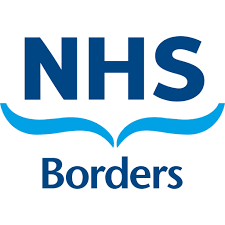Protected mealtimes

Introduction
Good nutritional care and adequate hydration are essential elements of a patient’s treatment. Protected mealtimes are periods of time when all non-urgent activity stops, enabling the patient to eat without interruption and allowing staff to provide assistance. This ensures that maximum priority is given to good nutritional care.
The patient and their family or carers should be made aware of the mealtime process as soon after admission as is reasonably possible. They should be informed that visiting during mealtimes is only allowed if the intention is to assist or encourage the patient to eat and drink.
All multi-disciplinary staff are responsible for adhering to this Standard Operating Procedure (SOP) and ensuring good nutritional care and adequate hydration are provided to our patients.
Purpose/Intent
The purpose of this SOP is to demonstrate how protected mealtimes should be implemented within NHS Borders inpatient settings.
This document is intended to be used in conjunction with the NHS Borders Food, Fluid and Nutritional Care Policy.
Procedure
- The person in charge of the ward will organise staff mealtimes to maximise the number of people available to assist patients with eating & drinking.
- The person in charge of the ward will identify an appropriate Ward Meal Coordinator of any discipline or band (but not a volunteer). This person will ensure that:
- All staff on the ward are aware of the practice of protected mealtimes and that they are encouraged to adhere to this procedure.
- Appropriate signage is displayed outside the ward to inform staff and visitors of the protected mealtime period.
- All non essential duties cease on the ward, e.g. ward rounds, drug rounds, GP visits, cleaning, documentation, therapy - unless clinically appropriate.
- Staff directly involved with patients at mealtimes will avoid answering the telephones. Clinical areas may consider identifying a specific person to answer all calls.
- Patients requiring assistance are identified by the ward team prior to the serving of meals and consideration is given to the order in which meals are served and who will assist each patient.
- Before the serving of food, clinical staff should prepare themselves, the environment and their patients:
- All eating surfaces should be cleaned and cleared of items not conducive to mealtimes such as urine bottles, used dressings and tissues.
- Consideration should be given to where patients sit to support both the safety and the social aspects of mealtimes. If there are communal areas then patients are to be encouraged and assisted to sit at the table.
- Where appropriate, patients should be assisted to the toilet prior to meals being served.
- Patients should be assisted to sit in an appropriate eating position, i.e. upright at 90°.
- Patient’s with natural teeth or who wear dentures should be assisted to perform oral hygiene.
- All patients should be given the opportunity to wash their hands or use hand wipes.
- Patients should be offered appropriate personal protective equipment e.g. serviettes, aprons.
- Tables should be within reach and set with appropriate equipment e.g. plate guards, adapted cutlery, cups.
- Staff should ensure their hands are washed and that they are wearing appropriate personal protective equipment (PPE) in accordance with the latest Infection Control Guidance, Any relatives, carers or volunteers should be encouraged to do the same.
- Meals should be checked as they are removed from the trolley to ensure that the items delivered match the menu cards and are appropriate and safe for the patient to consume.
- Meals should be served and delegated staff members should proceed to help those patients who require prompting, supervision or assistance to eat or help with the removal of any packaging.
- Hot food should ideally be served within 15 minutes of the arrival of the meal trolley onto the ward.
- Interruptions during mealtimes should be minimised. Anyone entering the ward during this time should be made aware of the mealtime process and encouraged to return after the meal is completed.
- When trays or plates are removed staff should check the proportion of food consumed and where appropriate this should be recorded on a Food Intake Chart or in the patient’s healthcare records.
- Staff should ensure all non catering items are removed from the tray before placing them back into the meal trolley, e.g. medicine pots, tissues, cotton wool balls.
- Any packaged cold food items that are unopened, such as sandwiches or jelly, should be removed from the trays, labelled with the patient’s details and placed in the ward food refrigerator.
- If a relative or carer is assisting the patient to eat they should be encouraged to assist in the completion of any Food Intake Charts.
- After meals are completed and trays or plates have been removed, patients should be assisted to remove any aprons or serviettes. Checks should be carried out to ensure that none of the patient’s personal belongings, such as their dentures, have been wrapped up in an apron or serviette.
- Patients should be offered hand wipes and staff should ensure patient’s hands, mouth and clothes are free of foodstuffs. Oral hygiene assistance may be required.
- Staff should tidy and wipe tables and ensure all debris is removed.

